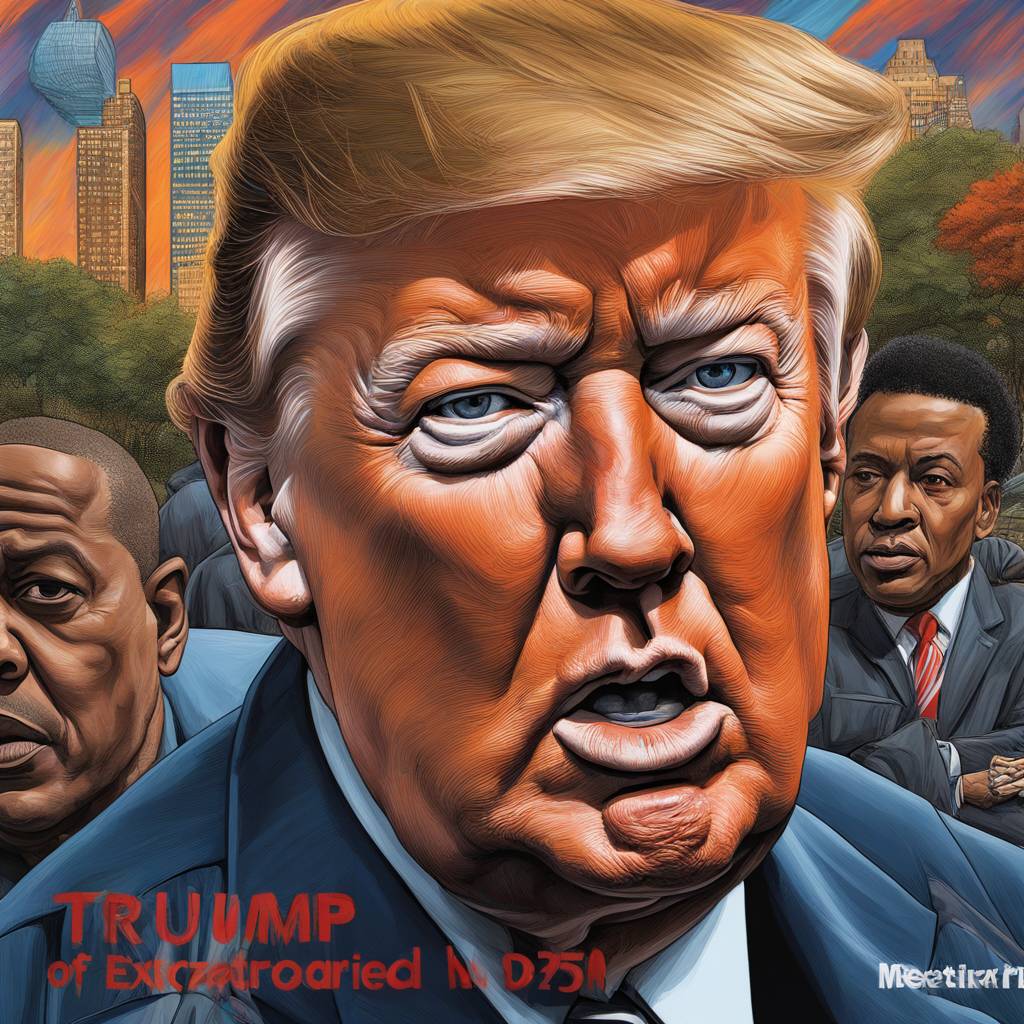Salaam recounts how Trump took out a full-page ad in several New York City newspapers calling for the death penalty to be reinstated in the case of the Central Park Five, despite the fact that they were eventually exonerated through DNA evidence. Salaam reflects on how Trump’s incendiary rhetoric at the time contributed to the public perception of the boys as guilty before they had even gone to trial, leading to a lack of presumption of innocence and unfair treatment in the media and legal system.
Salaam discusses how Trump’s rhetoric targeted black and brown individuals like himself, perpetuating harmful stereotypes and fueling racial tensions in the city. He details the impact of being labeled a “wolf pack” and a “wilding,” terms that were used by Trump and the media to dehumanize and demonize the boys, turning public opinion against them. Salaam emphasizes the lasting trauma of being wrongfully accused and unfairly targeted, asserting that Trump’s words had a lasting impact on his life and contributed to the systemic injustices faced by people of color in the criminal justice system.
Despite the trauma Salaam experienced, he expresses empathy towards Trump, acknowledging that the former president’s actions were likely influenced by a desire for attention and success in the public eye. Salaam underscores the importance of forgiveness and understanding, urging people to recognize the humanity in others and strive for reconciliation and healing. He emphasizes the need for accountability and reconciliation in order to address the systemic issues that perpetuate racial injustice and inequality in society.
Salaam reflects on the power of storytelling and urges individuals to tell their own narratives in order to challenge harmful stereotypes and reshape public perception. He highlights the importance of reclaiming one’s own narrative and speaking out against injustice, advocating for social change and progress. Salaam encourages individuals to share their experiences and advocate for justice in order to create a more equitable and inclusive society for all.
In conclusion, Salaam reaffirms his commitment to fighting for justice and standing up against racial injustice, drawing on his own experiences to advocate for systemic change. He emphasizes the importance of holding individuals and institutions accountable for perpetuating harmful narratives and calls for a collective effort to dismantle systems of oppression and work towards a more just and equitable society. Salaam’s powerful story serves as a reminder of the lasting impact of systemic racism and the importance of speaking out against injustice in order to create a more equitable and inclusive society for future generations.


